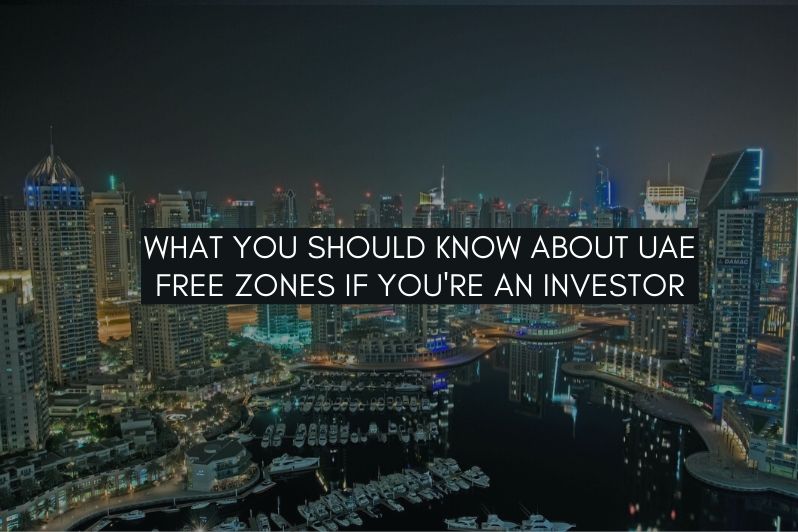The free trade zones in UAE are geographic areas that offer favorable conditions when it comes to establishing and operating businesses. They are great for import, production, processing, and modifying goods as custom duties only apply when goods are going to be delivered to consumers either in the free trade zones or UAE mainland.
Quite often, UAE free zones are located close to international airports and major seaports, providing the benefit of ease in conducting international trade.
What Investors Should Know About UAE Free Zones
Below, you’ll find useful facts regarding economic zones in UAE, which hopefully provides you with enough information to assess whether or not you should undergo business setup in UAE free zone.
- The United Arab Emirates has more than fifty free trade zones and each one has its own policies and regulations that are designed for specific kinds of businesses. There are free zones that specialize in certain kinds of businesses and industries. For instance, Dubai Internet City provides a free trade zone that focuses on activities related to IT, the internet, and software development. As for Dubai Design District or D3, it allows businesses to operate in an area that promotes growth in the design and fashion industry.
- The UAE’s first free zone is JAFZA, which was established in the 1980s. As of now, this free zone is the largest in all the world. The port that is in the zone is the largest as well. Jebel Ali port is busiest in all of the Middle East, providing connections to hundreds of ports across the globe.
- UAE free zone companies allow company holders to own a hundred percent of the shares of the business. When registering a business outside a free zone, there is a need to partner with a local citizen or UAE national which is to own majority of the shares of the company.
- UAE free zones offer full exemption from corporate and personal income tax.
- In domestic markets, products may be sold via local distributors as free zone businesses don’t have the right indirectly selling their goods. Free zone companies may be able to sell goods on a wholesale basis. There are exemptions, of course, like the Dubai Design District that has exhibition halls, restaurants, beauty salons, and retail stores.
- In a free zone, it is possible to register a brand new company or a company subsidiary. There is also the possibility to open branches of existing local and foreign companies. A branch that is registered in an economic zone will be operating under the same name as its parent company. It also has to perform the same activities, if permitted within the free zone.
- Companies that are in Sharjah free zones as well as in other emirates have the right in obtaining UAE resident visas that are valid for two to three years. The visas are renewable.
- The number of resident visas that can be issued will depend on the object that’s rented by the firm and the number of employees and investors. For instance, if the business rents a combined workplace that allows for 20 people, then it will get the same number of visas as allowance. Take note: leasing an office space typically allows one visa for each ten square meters of space.
- The company’s office has to be located within the free zone where it is registered. The company’s owner, local or foreign, may be able to withdraw profits and capital from the country with no exceptions.
- If you are issued an industrial license by a free zone authority and the product that you manufacture is within the free zone, the duty-free GCC agreement won’t apply when you supply to any of the GCC countries.
- An important benefit to the registration of a business in a UAE free zone is it’s not necessary for the business to rent an office if certain types of real estate are not required. This is often reliant on the business’ activities that are indicated in the issued license.
Also Read: Advantages of business setup in Ajman Free Zone (AFZ)
What are the Top UAE Free Zones?
The best free zones to set up a business in UAE include TwoFour54, Dubai Wholesale City, Dubai Silicon Oasis, RAK Free Trade Zone, and Fujairah Free Zone.
Take note: The best free zone for business setup will depend on the business activities you intend to carry out.
What is a Free Zone?
A free zone is an economic area wherein goods or services may be traded with preferential customs and tax rates. Free zone business setup is often attractive to foreign investors as it offers full ownership to the business.
Starting a business in any of the many free zones in UAE may just be the best decision you’ll ever make. Contact us today to discuss with experts regarding business setup in UAE free zone.
